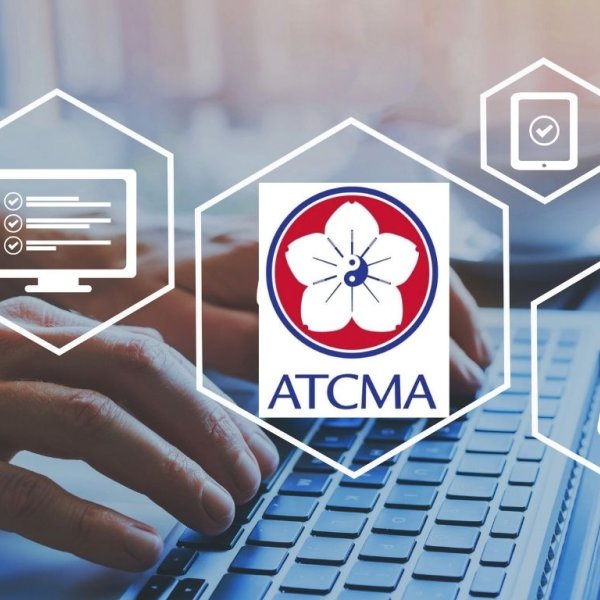BC’s TCM profession is facing urgent regulatory issues that threaten patient safety, professional integrity, and access to care. The Ministry of Health and key leaders need to hear from as many practitioners as possible — in your own words.
While ATCMA is seeking legal assistance to better understand our new regulations document and how it will impact our practice starting next spring, you need to write your own letters to the BC government. The more vocal we are, the more they will have to listen to us. Here, we've included information you can use to write your letter. And, if you're not comfortable with your writing ability, why not use AI assistance. Just make sure to include why this is important to you, as a BC resident and as a TCM registrant or patient.
Why Write?
BC’s TCM profession is facing urgent regulatory issues that threaten patient safety, professional integrity, and access to care. The Ministry of Health and key leaders need to hear from as many practitioners as possible — in your own words.
Background
The provincial government, recently released the new Complementary Health Professionals Regulation https://www2.gov.bc.ca/gov/content/health/practitioner-professional-resources/professional-regulation/health-professions-and-occupations-act (scroll down to College of Complementary Health Professionals of BC (CCHPBC) OR click on COMPLEMENTARY HEALTH PROFESSIONALS REGULATION.pdf). This document is set to replace the current TCM and Acupuncture Regulations when the Health Professions and Occupations Act (HPOA) replaces the current Health Professions Act (HPA) on April 1, 2026.
This key document serves to “outline the name of the college that regulates each health profession, reserved titles, scope of practice statements, activities restricted to the health profession, and limits or conditions on practice.” In other words, it states what you can (or cannot) do as a registered healthcare professional.
The first attempt at this revised regulation document was released in January 2024, and registrants across BC wrote in to the government to complain that this document:
- Removed prescribing Chinese herbal formulas a restricted activity.
- Removed all Pinyin language to identify TCM-specific skills, such as tui na, qi gong, and tai chi.
- Did not update our scope of practice, despite more than a decade of requests from registrants, the ATCMA, and from our previous regulatory college.
The government put that proposed regulation document on hold, saying they would seek stakeholder input and consultation. The ATCMA invested time, money, and much effort to get feedback from our membership and then communicate directly with the BC government’s Ministry of Health (MOH) and Professional Regulation and Oversight Branch (ProReg).
Despite this, none of these requests were met.
Key Issues to Address in Your Letter
Loss of Prescribing Chinese Herbal Medicine as a Restricted Activity
- Registered TCM Herbalists, TCM Practitioners, and Doctors of TCM receive an initial minimum of three to five years of training to safely and effectively prescribe Chinese herbal formulas. We then have ongoing continuing education throughout our career span.
- Complex herbal formulas require training to avoid dangerous drug interactions and adverse effects.
- Removal of restrictions allows unqualified individuals to prescribe herbs, risking public safety.
Outdated Scope of Practice
- TCM scope has not been modernized since 2009.
- Point Injection Therapy (PIT) was practiced safely for about 20 years by approximately 200 practitioners who received specialized training.
- Recent changes abruptly prohibited PIT despite a strong safety record, insurance coverage, and positive patient outcomes, particularly in the treatment of chronic pain.
Misrepresentation of TCM
- Current definition ignores the breadth of TCM training and minimizes our broad set of skills.
- Does not recognize that TCM is not a static profession stuck in the past. It is an evolving science with clinical evidence.
Professional Inequity
- Other health professions have received scope expansions, including in the most recent release while TCM requests have been ignored for over a decade.
Healthcare System Issues and Failures
- You might note that TCM and Acupuncture professionals can help support our province in its current healthcare crises, including helping in team-based care, providing treatment and support for chronic pain and illness, helping manage addictions and mental health issues, and more.
What to Ask For
*Note that you may pick all of the following or select those that are important to you
- Reinstate Chinese herbal medicine as a restricted activity.
- Modernize TCM scope to formally include PIT and other traditional modalities like high-velocity joint mobilizations.
- Act on long-standing amendment requests promptly.
- Support professional development and integration of TCM within BC’s healthcare system.
- Provide a clear plan and timeline for changes.
Tips for Writing Your Letter
- Use your own voice — personalize with a short patient success story if possible.
- Keep it respectful but firm.
- State that you are a licensed practitioner and a BC resident.
- End with your willingness to discuss or provide evidence or further information.
Where to Send Your Letter
- Executive Director, Professional Regulation and Oversight
Ministry of Health
3rd Floor, 1515 Blanshard Street
PO BOX 9649 STN Prov Govt
Victoria BC V8W 9P4
PRORegAdmin@gov.bc.ca - Honourable Josie Osborne
Minister of Health
PO Box 9050 Stn Prov Govt
Victoria BC, V8W 9E2
Phone: 250-953-3547
E-mail: HLTH.Minister@gov.bc.ca - Find your MLA: https://www.leg.bc.ca/members



Login to comment
Comments are only available to registered users. Not registered yet? Create a free account now.